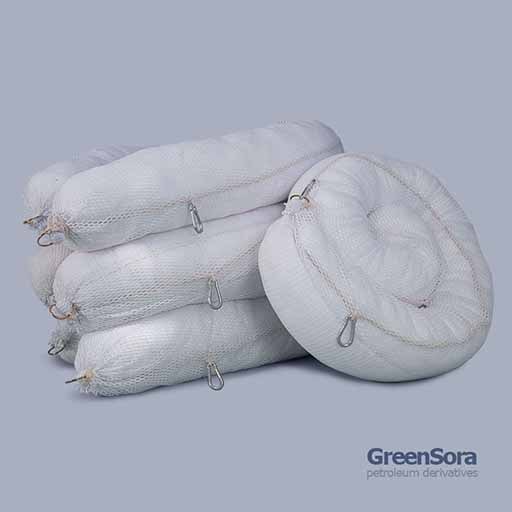Categories
Oil Absorbent Pillows
Oil Absorbent Roll
Oil Absorbent Sand
Oil Absorbent Socks

Whether it is leaks and drip losses on machines in daily use or emergency response in the case of a spill, oil absorbents help you to avoid pollution, risks, and associated costs. Different oil absorbents are available in absorbent product companies for other uses and in various practical options. Regardless of type, oil absorbents are used to soak up liquid hydrocarbons like gasoline and oils. Hence, they are essential to sites like:
Production lines
manufacturing
transportation
public security and fire protection
the petrochemical industry
energy and power industry
maritime emergency rescue
port and aviation
medical industry
environmental protection bureau
food processing industry
And other places in which leakage liquids need to be removed.
Oil absorbents are used in various industrial applications, ranging from cleaning up oil leakage to removing oil from ocean water. Hence, these absorbents come in many forms, such as oil-absorbent pads, socks, booms, and pillows. In industrial, pads, rolls, and barrel tops are so popular.
Oil Absorbent pads are provided pre-cut, they are ideal when you know how much space you intend to cover. In addition, you do not have to set the individual pieces of fabric. They are easier to use in emergencies. They are now available in light, medium, and heavy weights.
Absorbent roll is the best choice for areas such as high-traffic entranceways and walkways. They are perfect for large areas. Furthermore, you use the exact amount that you need.
This type is also a pre-cut mat explicitly designed for absorbing oil spills from barrel pumps and taps. This dramatically reduces the amount of clean up material when dealing with barrel pumps and taps.
Oil-absorbent booms are perfect for the control and cleaning up oil spills on water. These booms are used to handle all types of oil spills, such as fuel oils, gasoline, diesel, motor oil, jet fuel, hydraulic oil, and kerosene. Oil Booms are up for the task if you are dealing with an oil spill in the lake, sea, ocean, river, wastewater, pond, or stream. They can also be used to contain and absorb large or small industrial hydrocarbon spills on lands. There are mainly four types of oil booms: foam-filled oil booms, solid flotation booms, harbor booms, and inflatable booms designed for specific locations, environmental and climate conditions, and project durations.
Absorbent pillows are versatile absorbents because of their unique flexible shape. They can be adapted to tight and awkward spaces to absorb leaks, drips, and spillages, preventing them from dispersing. These oil absorbents are great for absorbing pooled liquid. They are usually available in 3 types: chemical, general purpose, and oil.
Absorbent socks work mainly like oil-absorbent pads. They soak up spills fast as they are filled with super oil-absorbent material. This liquid hydrocarbon absorbent is used for general operations, maintenance, and repairs. Although they are used primarily on lands when you have oil to soak up, they can be on the water, absorbing all hydrocarbons such as gasoline, lubricating oils, diesel, and fuel oil. In addition, they are used for fast contaminants in case of a spill or around machinery.
Granular oil absorbents naturally absorb oil due to their porous and dry makeup. This absorbent mostly looks like coarse sand and is sold in large bags. Granular oil absorbents can be sprinkled on an oil spill to absorb all of that, allowing it to be swept up and then properly disposed of. This is one of the cheapest and easiest ways to clean up spilled oil. Said, you can just throw it on the oil and sweep it up! There are several types of granular oil absorbents, such as clay absorbent granules, polypropylene, recycled paper, corn cob, coconut husk, and spill king.
Absorbent pads, socks, booms, and more, there are so many choices of absorbents. They all absorb liquids, but each type works best if it is used in the right application.
It can be a bit intimidating to choose a single one for your application. So, we are going to help simplify the process. There are some questions that you should ask.

Greensora International Strategy Company offers a variety of products to contain, recycle and clean oil from the water environment or polluted beaches.
Enter your Number to get the price